When importing goods from China to Russia, understanding your shipping options is critical for ensuring a smooth and cost-effective logistics experience. With various shipping methods available—from the speed of air freight to the economy of sea freight—businesses must navigate not only transit times but also the associated costs and regulations. This guide provides a comprehensive overview of the shipping methods, factors influencing prices, and insights into customs procedures, empowering importers to make informed decisions and optimize their supply chain strategies. Whether you’re transporting time-sensitive products or bulk shipments, knowing the intricacies of the shipping landscape will help you achieve your logistics goals efficiently.
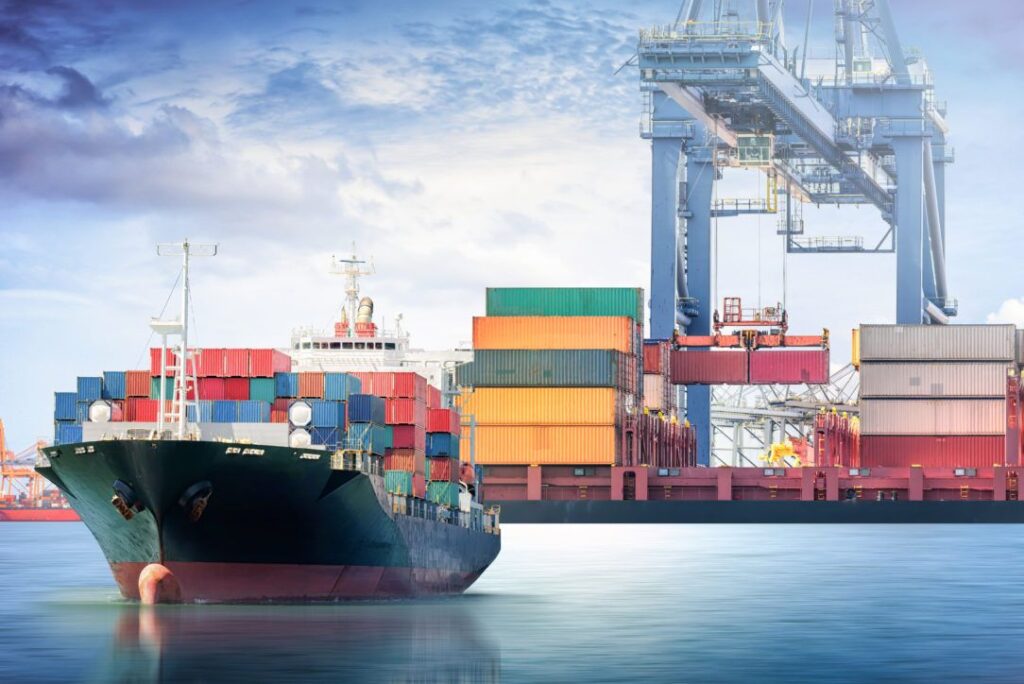
Understanding Shipping Options from China to Russia
When it comes to importing goods from China to Russia, understanding your shipping options is crucial to ensure that your freight forwarding experience is efficient, timely, and cost-effective. With diverse shipping methods available, businesses can tailor their logistics strategies to meet specific needs and budget considerations. This guide provides an in-depth analysis of the shipping methods, costs involved, and factors influencing these costs.
Overview of Shipping Methods: Air vs. Sea Freight
Air Freight
Air freight is one of the fastest shipping methods available, making it ideal for businesses that need to transport time-sensitive goods. With air freight, shipments can be delivered within a matter of days, significantly reducing lead times compared to other methods. However, this speed comes at a premium.
Advantages of Air Freight:
- Speed: Shipments can reach their destination in just a few days.
- Reliability: Air freight often has more defined schedules and fewer delays compared to sea freight.
- Reduced Risk of Damage: With shorter transit times, the likelihood of goods being damaged is lower.
Disadvantages of Air Freight:
- Cost: Air freight is generally more expensive than sea freight.
- Weight and Size Restrictions: Air freight is not suitable for very bulky or heavy shipments.
Sea Freight
Sea freight is the most widely used shipping method for large-volume shipments. While it takes longer than air freight, sea freight is often significantly more economical for transporting large quantities of goods.
Advantages of Sea Freight:
- Cost-Effective for Bulk Shipments: Sea freight is typically much cheaper than air freight for large volumes.
- Capacity: Ships can accommodate larger and heavier shipments that air transport cannot.
Disadvantages of Sea Freight:
- Longer Transit Times: Depending on the route, sea freight can take several weeks.
- Potential for Delays: Various factors, including weather and port congestion, can cause delays.
| Shipping Method | Speed | Cost | Ideal For |
|---|---|---|---|
| Air Freight | Fast (1-5 days) | High | Time-sensitive goods |
| Sea Freight | Slower (2 weeks+) | Low | Large volume, non-urgent goods |
Key Factors Influencing Shipping Costs
Several factors can significantly influence the shipping costs from China to Russia:
- Weight and Volume of Goods: Heavier or bulkier shipments will incur higher costs, especially with air freight.
- Shipping Method: As discussed, air freight is considerably more expensive than sea freight.
- Fuel Prices: Fluctuations in fuel prices can lead to changes in shipping costs.
- Customs Fees and Duties: Import tariffs and customs clearance fees can add to the total cost.
- Insurance: Optional but often advisable for valuable shipments, insurance can be an added expense.
Understanding these factors is essential for businesses to accurately budget for their shipping needs.
You may be interested in the following related articles:
- Shipping From China To Cyprus
- Shipping From China to Turkey
- Shipping From China To Sweden
- Shipping From China To Finland
- Shipping From China To Portugal
- Shipping From China To Czech Republic
- Shipping From China to Austria
- Shipping From China to Hungary
- Shipping From China to Romania
Shipping Costs from China to Russia
Average Shipping Costs for Air Freight
The cost of air freight from China to Russia can vary depending on various factors, including the weight of the goods, the specific origin and destination airports, and current fuel prices.
- Cost Per Kilogram: Average rates range from $5 to $12 per kilogram for air freight.
- Minimum Charges: Most air freight carriers have a minimum charge, typically around $100 to $200.
Average Shipping Costs for Sea Freight
Sea freight costs are generally lower than air freight, especially for large volumes.
- Cost Per Container: A 20-foot container can range from $1,000 to $2,000, while a 40-foot container can range from $2,000 to $4,000, depending on the shipping line and the specific route.
- Cost Per Cubic Meter: For less-than-container load (LCL) shipments, costs can range from $50 to $150 per cubic meter.
Hidden Fees and Additional Charges
It’s essential to be aware of potential hidden fees and additional charges that can arise during shipping:
| Fee Type | Description |
|---|---|
| Customs Duties | Fees charged by the government for importing goods. |
| Insurance Fees | Optional fee to protect your shipment against loss or damage. |
| Port Handling Fees | Charges for the handling and logistics at ports. |
| Terminal Fees | Charges for using terminal facilities at ports. |
| Documentation Fees | Costs related to paperwork, such as bills of lading and customs documentation. |
Being informed about these fees will help businesses avoid unexpected costs that can impact overall shipping budgets.
For those looking to simplify the complexity involved in shipping from China to Russia, Dantful International Logistics serves as a highly professional, cost-effective, and high-quality one-stop international logistics service provider for global traders. With expertise in customs clearance, insurance services, and warehouse services, Dantful can streamline your shipping processes, ensuring that your goods arrive safely and on time.
Shipping Times from China to Russia
When planning to import goods from China to Russia, understanding transit times is vital for effective supply chain management. Different shipping methods offer varying speeds, affecting delivery schedules and inventory management.
Average Transit Times for Air Freight
Air freight provides the quickest shipping solutions. On average, the transit time for air freight from major cities in China to key destinations in Russia is as follows:
- Direct Flights: 1 to 3 days.
- Indirect Flights (with layovers): 3 to 5 days.
Air freight is ideal for businesses that require rapid delivery of time-sensitive goods, such as electronics or perishable items. However, it’s essential to account for potential delays due to customs clearance or other logistical challenges.
Average Transit Times for Sea Freight
Sea freight is more economical and suitable for large shipments. However, it requires significantly longer transit times:
- Full Container Load (FCL): 20 to 40 days, depending on the port of departure in China and the destination port in Russia.
- Less than Container Load (LCL): 25 to 50 days, as it involves consolidating shipments from multiple sources, which adds extra handling time.
Sea freight is advantageous for businesses that can afford to wait longer for delivery, particularly when shipping large volumes of less time-sensitive goods.
Factors Affecting Shipping Speed
Shipping speed can be influenced by several factors, including:
- Distance and Route Taken: More direct routes tend to have shorter transit times.
- Weather Conditions: Bad weather can lead to delayed shipments, particularly for air freight.
- Customs Clearance: Delays in customs can significantly extend the time it takes for goods to clear and reach their final destination.
- Peak Seasons: During busy shipping seasons, such as holidays, transit times may increase due to higher volumes of cargo.
Understanding these factors allows businesses to better plan their logistics strategies and set realistic delivery expectations.
How to Choose the Right Shipping Company
Selecting the right shipping company is essential for ensuring your goods are transported efficiently and cost-effectively. Here are some key considerations.
Comparing Shipping Companies: Key Metrics to Evaluate
When evaluating shipping companies, consider the following metrics:
- Transit Times: Compare average shipping times for different carriers.
- Cost Structure: Analyze the overall cost, including hidden fees.
- Service Options: Check if they offer diverse shipping methods like air freight, sea freight, or door-to-door shipping.
- Customer Service: Evaluate their responsiveness and support during shipping.
Creating a comparison table can help visualize these metrics and make informed decisions.
The Role of Freight Forwarders in Cost Reduction
Freight forwarders play a pivotal role in optimizing shipping processes. They can help reduce costs by:
- Consolidating Shipments: Combining multiple shipments into one can lower shipping rates.
- Negotiating Rates: Established freight forwarders often have better relationships with carriers and can negotiate lower rates.
- Providing Expertise: They can guide businesses through the complexities of international shipping, helping to avoid costly mistakes.
Utilizing a reputable freight forwarder, such as Dantful International Logistics, can streamline the logistics process and enhance overall efficiency.
Customer Reviews and Reputation: What to Look For
Evaluating customer reviews and the reputation of shipping companies can provide insight into their reliability and service quality:
- Look for Consistency: Consistent positive feedback indicates a trustworthy company.
- Assess Responsiveness: How does the company handle issues or complaints? Quick and effective resolution is a good sign.
- Industry Recognition: Awards or certifications can indicate a company’s standing in the logistics industry.
Combining these assessments will assist in identifying a shipping partner that aligns with your business needs.
Dantful International Logistics Services:
- Dantful Ocean Freight Services
- Air Freight From China
- Amazon FBA Freight Forwarding
- WAREHOUSE Services
- One-Stop Customs Clearance Solution
- Cargo Insurance Services in China
- DDP Shipping Services By Dantful Logistics
- Out of Gauge Cargo Transportation Shipping Services
Customs Regulations and Import Duties
Navigating customs regulations and understanding import duties is crucial for successful shipping operations from China to Russia.
Understanding Customs Procedures in Russia
Customs procedures can vary based on the type of goods being imported. Key aspects include:
- Documentation Requirements: Essential documents include a bill of lading, commercial invoice, and packing list. Ensuring all paperwork is complete can expedite customs clearance.
- Customs Inspections: Random inspections may occur, affecting transit times.
- Compliance with Regulations: Adhering to Russian customs regulations is vital to avoid penalties or shipment delays.
Familiarizing yourself with these procedures can significantly smooth the import process.
Common Import Duties and Taxes
Import duties and taxes levied by the Russian government can impact shipping costs. Common charges include:
- Customs Duties: Varies based on the product category, typically ranging from 0% to 20%.
- Value Added Tax (VAT): Standard VAT in Russia is 20%, applied to the total cost of goods plus customs duties.
- Excise Taxes: Applicable to specific goods such as alcohol and tobacco.
Understanding these charges will aid in budgeting for the total cost of importing goods.
Tips for Reducing Customs Charges
Businesses can implement several strategies to minimize customs charges:
- Proper Classification of Goods: Ensure correct tariff classifications to avoid overpaying duties.
- Utilize Free Trade Agreements: Leverage any applicable free trade agreements to reduce or eliminate tariffs.
- Engage a Customs Broker: A knowledgeable customs broker can help navigate regulations and minimize costs effectively.
Implementing these strategies can lead to significant savings in shipping expenses.
Tips for Reducing Shipping Costs
Lowering shipping costs is a priority for importers. Here are some effective strategies.
Strategies for Cost-Effective Shipping
- Optimize Packaging: Use the smallest, most efficient packaging to reduce volumetric weight and lower shipping costs.
- Plan Shipments Wisely: Schedule shipments during off-peak seasons to take advantage of lower rates.
- Consolidate Orders: Combine multiple orders into one shipment to reduce overall shipping costs.
Using Freight Forwarders and Logistics Services
Engaging a freight forwarder can significantly reduce shipping costs through:
- Expert Negotiation: Freight forwarders often have established contracts with carriers, allowing them to secure lower rates.
- Comprehensive Services: They can handle various logistics aspects, including customs clearance, insurance services, and warehouse services, streamlining the process and reducing errors that can result in additional costs.
By leveraging these strategies, businesses can enhance their shipping efficiency while minimizing expenses, ultimately contributing to the bottom line.
For tailored logistics solutions, consider partnering with Dantful International Logistics, a provider renowned for its comprehensive range of shipping services. Explore how Dantful can help you achieve cost-effective and reliable shipping from China to Russia.
FAQs
1. What are the main shipping methods available from China to Russia?
The primary shipping methods are air freight and sea freight. Air freight is faster but more expensive, ideal for time-sensitive goods, while sea freight is cost-effective for large shipments but takes longer.
2. How long does it take to ship goods from China to Russia?
- Air Freight: 1 to 5 days, depending on whether there are direct or indirect flights.
- Sea Freight: 20 to 50 days, depending on whether it’s a full container load (FCL) or less-than-container load (LCL).
3. What are the average shipping costs for air and sea freight?
- Air Freight: Ranges from $5 to $12 per kilogram, with minimum charges between $100 to $200.
- Sea Freight: A 20-foot container costs between $1,000 to $2,000, while a 40-foot container ranges from $2,000 to $4,000. LCL shipments cost about $50 to $150 per cubic meter.
4. What factors influence shipping costs?
Factors include the weight and volume of goods, shipping method, fuel prices, customs fees, and insurance.
5. What hidden fees should I be aware of?
Hidden fees may include customs duties, insurance fees, port handling fees, terminal fees, and documentation fees.
6. How can I reduce customs charges when importing to Russia?
Strategies include ensuring proper classification of goods, utilizing free trade agreements, and engaging a customs broker to navigate regulations.
7. What should I look for when choosing a shipping company?
Key metrics to evaluate include transit times, cost structure, service options, and customer service.

Young Chiu is a seasoned logistics expert with over 15 years of experience in international freight forwarding and supply chain management. As CEO of Dantful International Logistics, Young is dedicated to providing valuable insights and practical advice to businesses navigating the complexities of global shipping.

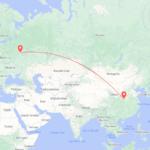



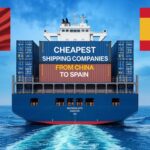
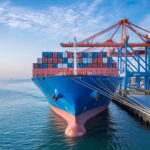




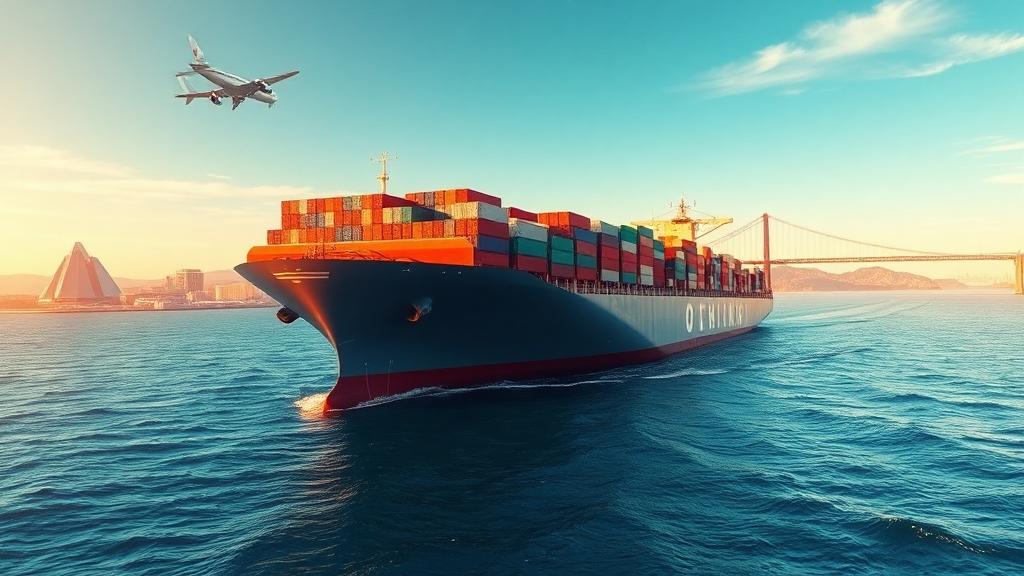
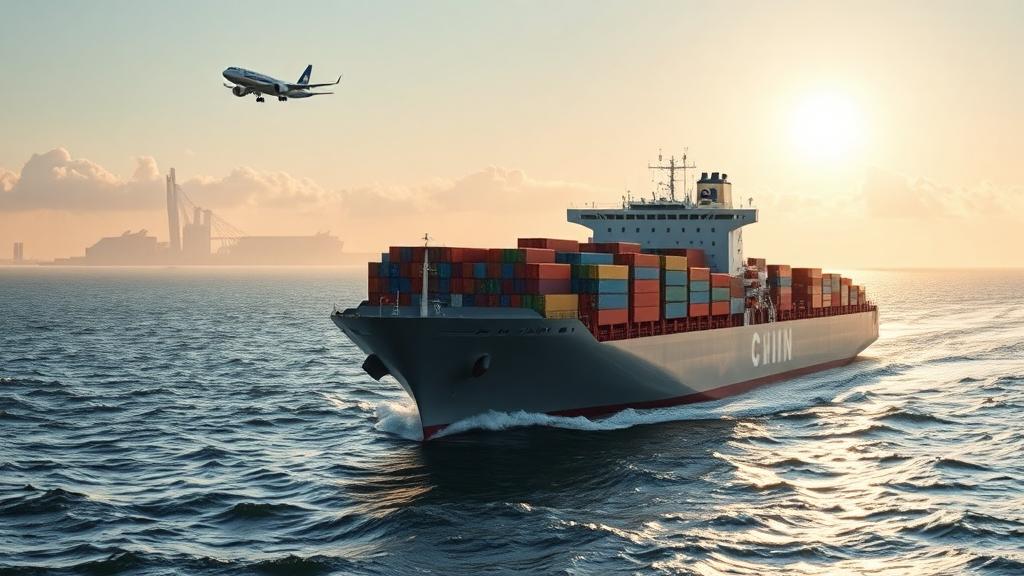
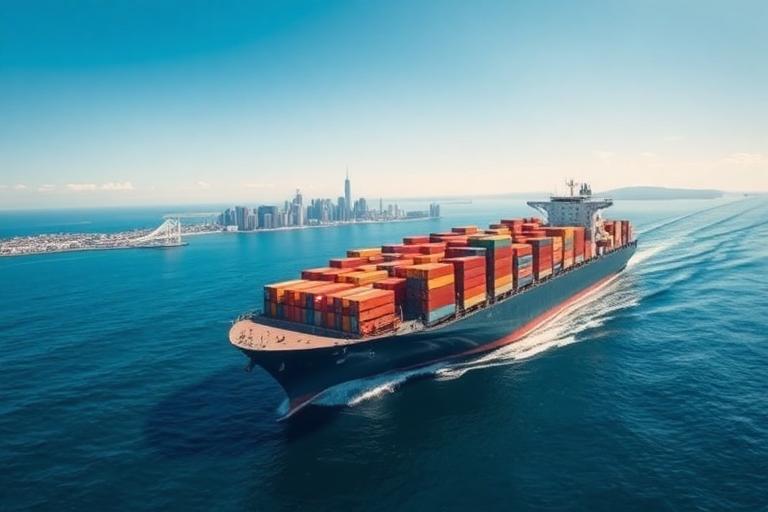
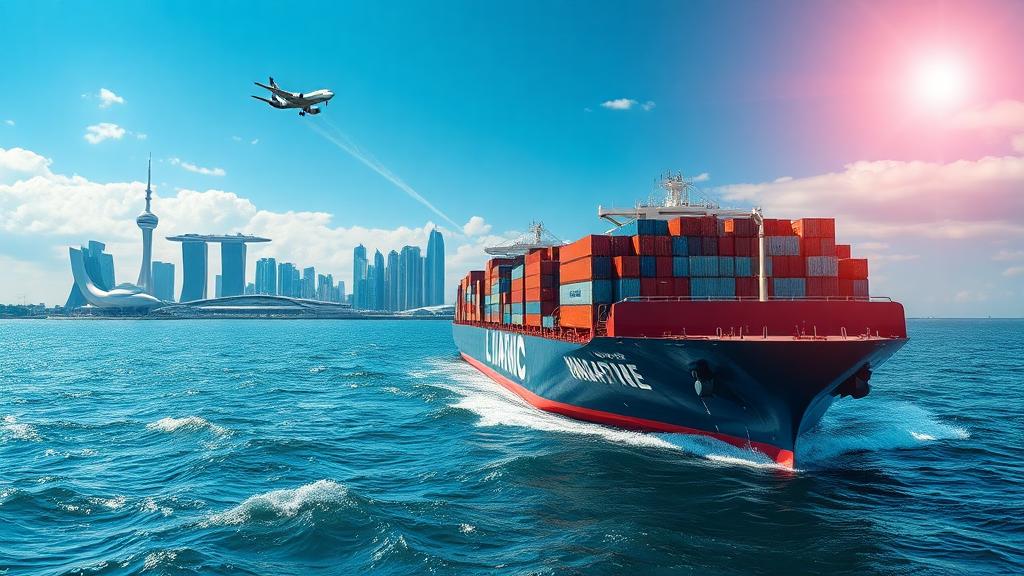
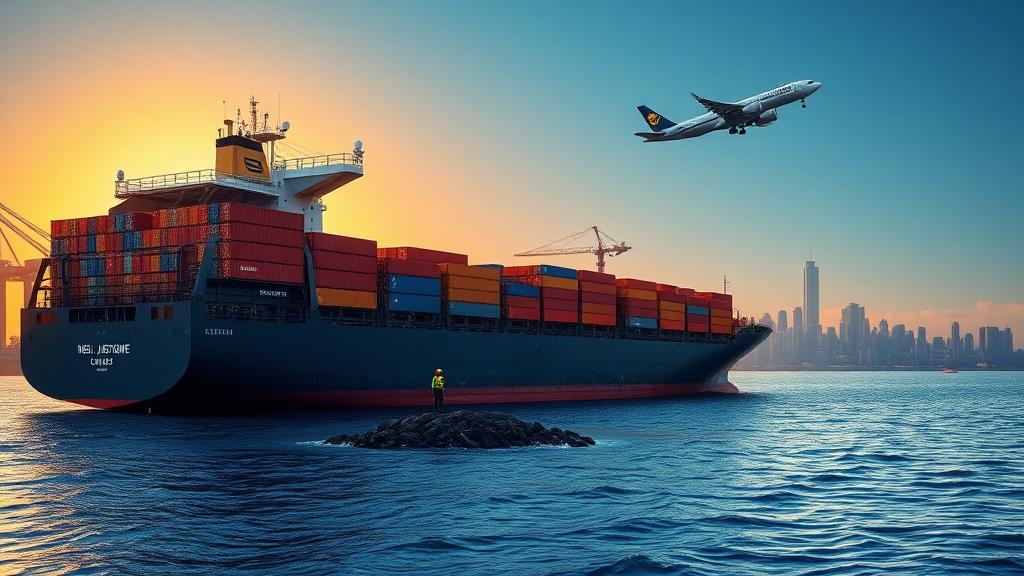





 Afrikaans
Afrikaans Shqip
Shqip አማርኛ
አማርኛ العربية
العربية Հայերեն
Հայերեն Azərbaycan dili
Azərbaycan dili Euskara
Euskara Беларуская мова
Беларуская мова বাংলা
বাংলা Bosanski
Bosanski Български
Български Català
Català Cebuano
Cebuano Chichewa
Chichewa 简体中文
简体中文 繁體中文
繁體中文 Corsu
Corsu Hrvatski
Hrvatski Čeština
Čeština Dansk
Dansk Nederlands
Nederlands English
English Esperanto
Esperanto Eesti
Eesti Filipino
Filipino Suomi
Suomi Français
Français Galego
Galego ქართული
ქართული Deutsch
Deutsch Ελληνικά
Ελληνικά Kreyol ayisyen
Kreyol ayisyen Harshen Hausa
Harshen Hausa Ōlelo Hawaiʻi
Ōlelo Hawaiʻi עִבְרִית
עִבְרִית हिन्दी
हिन्दी Hmong
Hmong Magyar
Magyar Íslenska
Íslenska Igbo
Igbo Bahasa Indonesia
Bahasa Indonesia Gaeilge
Gaeilge Italiano
Italiano 日本語
日本語 Basa Jawa
Basa Jawa ಕನ್ನಡ
ಕನ್ನಡ Қазақ тілі
Қазақ тілі ភាសាខ្មែរ
ភាសាខ្មែរ 한국어
한국어 كوردی
كوردی Кыргызча
Кыргызча ພາສາລາວ
ພາສາລາວ Latin
Latin Latviešu valoda
Latviešu valoda Lietuvių kalba
Lietuvių kalba Lëtzebuergesch
Lëtzebuergesch Македонски јазик
Македонски јазик Malagasy
Malagasy Bahasa Melayu
Bahasa Melayu മലയാളം
മലയാളം Maltese
Maltese Te Reo Māori
Te Reo Māori मराठी
मराठी Монгол
Монгол ဗမာစာ
ဗမာစာ नेपाली
नेपाली Norsk bokmål
Norsk bokmål پښتو
پښتو فارسی
فارسی Polski
Polski Português
Português ਪੰਜਾਬੀ
ਪੰਜਾਬੀ Română
Română Русский
Русский Samoan
Samoan Gàidhlig
Gàidhlig Српски језик
Српски језик Sesotho
Sesotho Shona
Shona سنڌي
سنڌي සිංහල
සිංහල Slovenčina
Slovenčina Slovenščina
Slovenščina Afsoomaali
Afsoomaali Español
Español Basa Sunda
Basa Sunda Kiswahili
Kiswahili Svenska
Svenska Тоҷикӣ
Тоҷикӣ தமிழ்
தமிழ் తెలుగు
తెలుగు ไทย
ไทย Türkçe
Türkçe Українська
Українська اردو
اردو O‘zbekcha
O‘zbekcha Tiếng Việt
Tiếng Việt Cymraeg
Cymraeg יידיש
יידיש Yorùbá
Yorùbá Zulu
Zulu